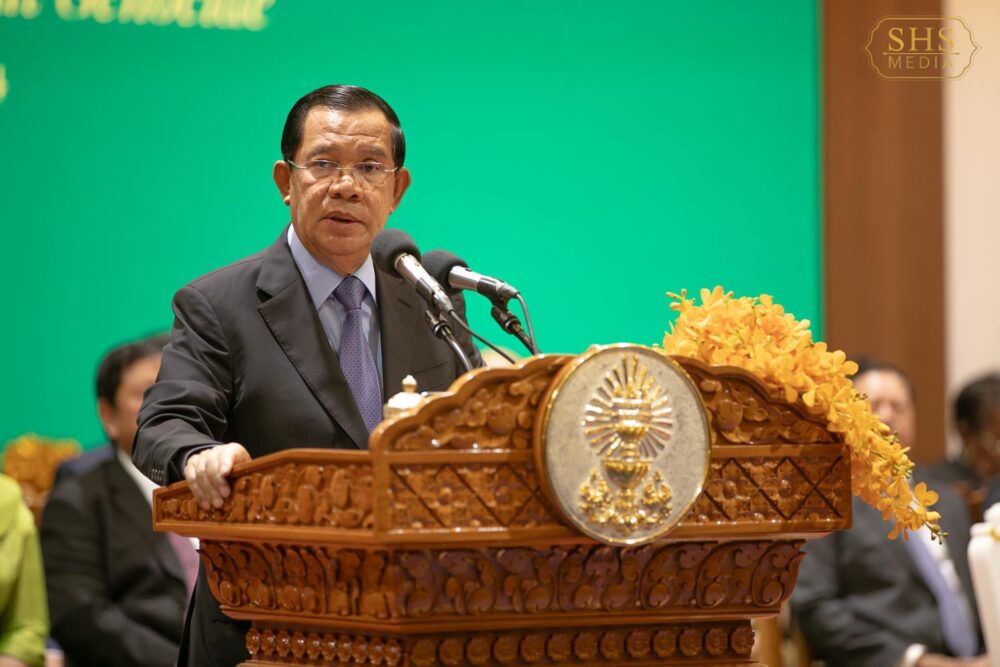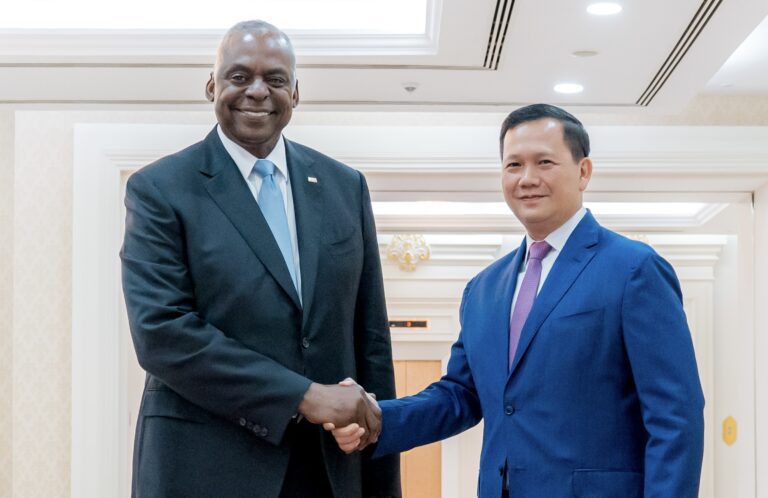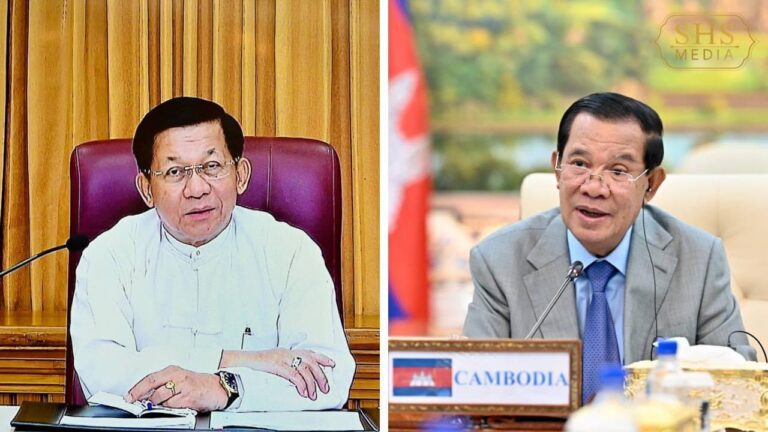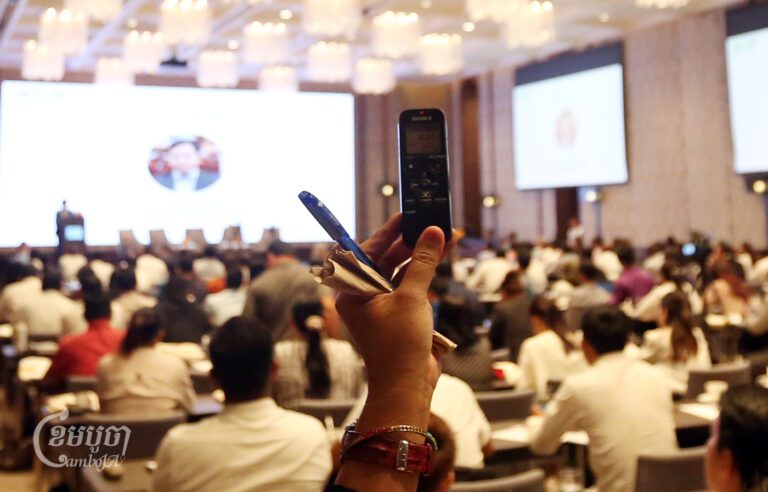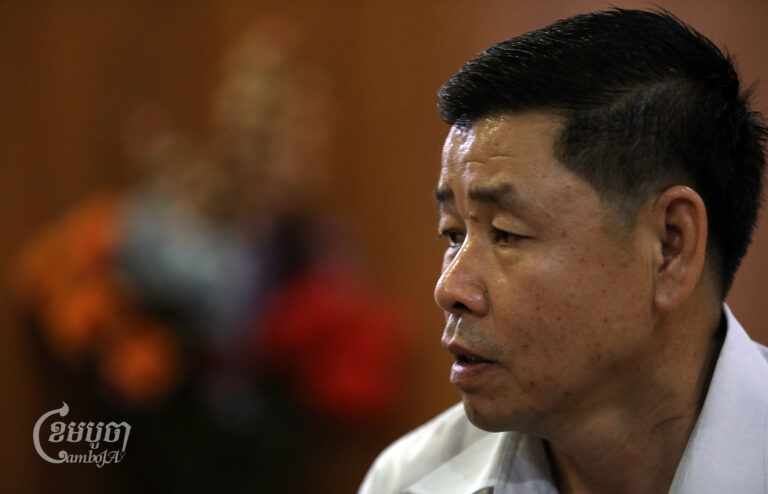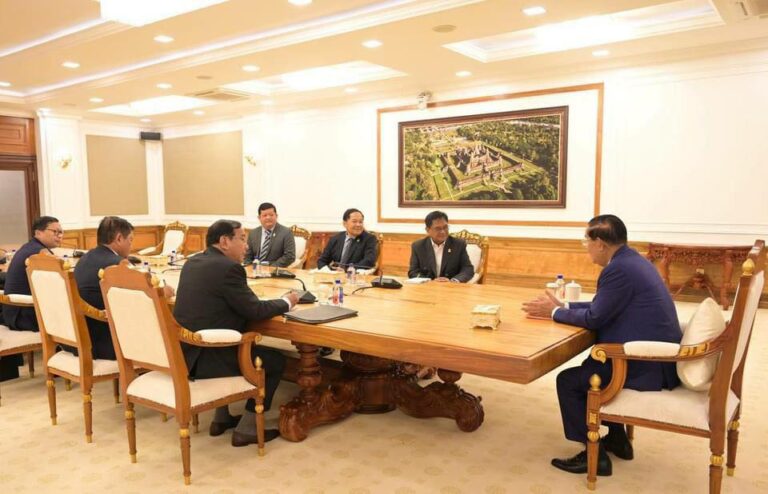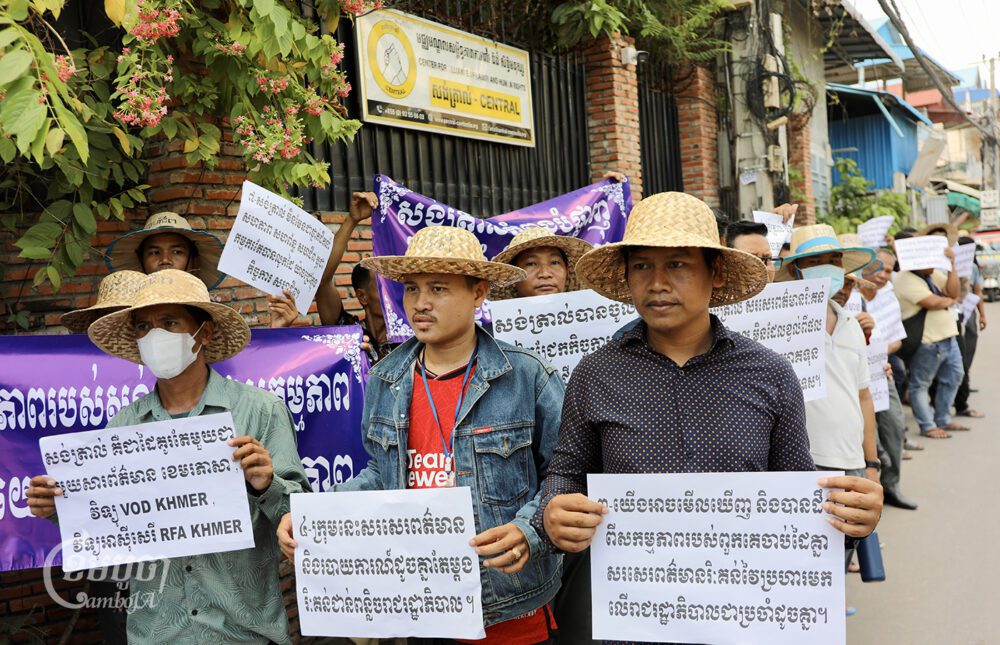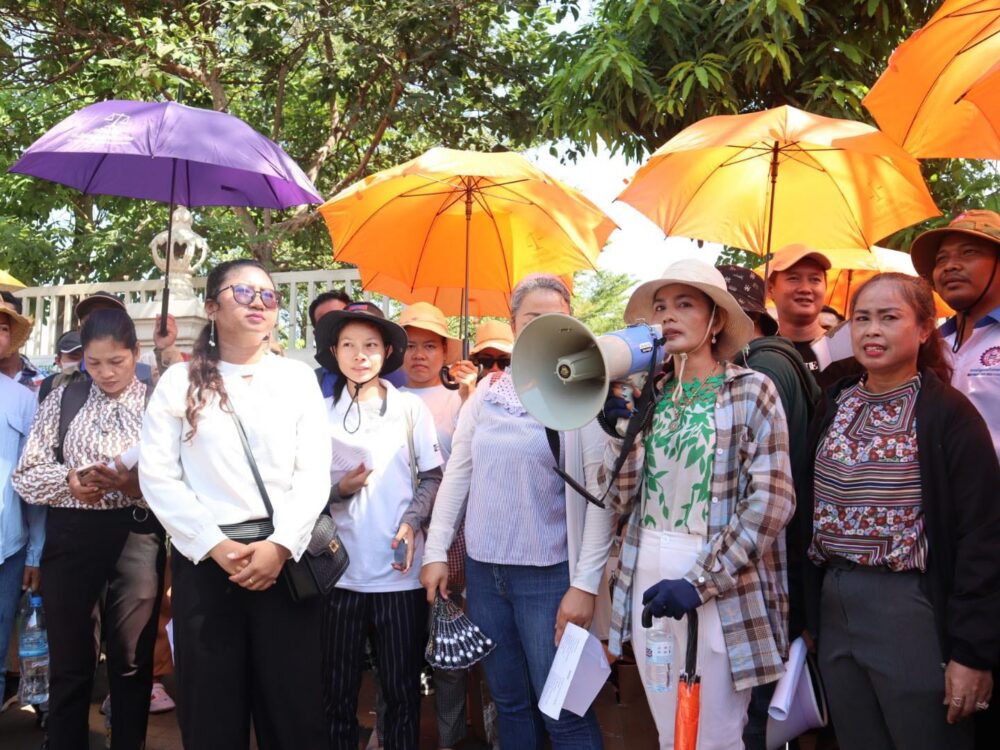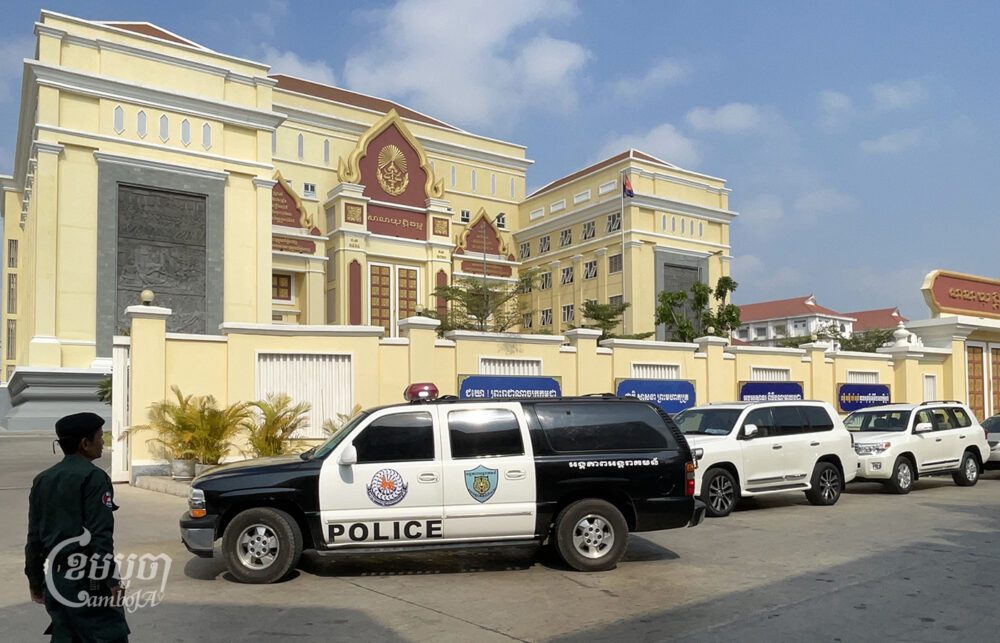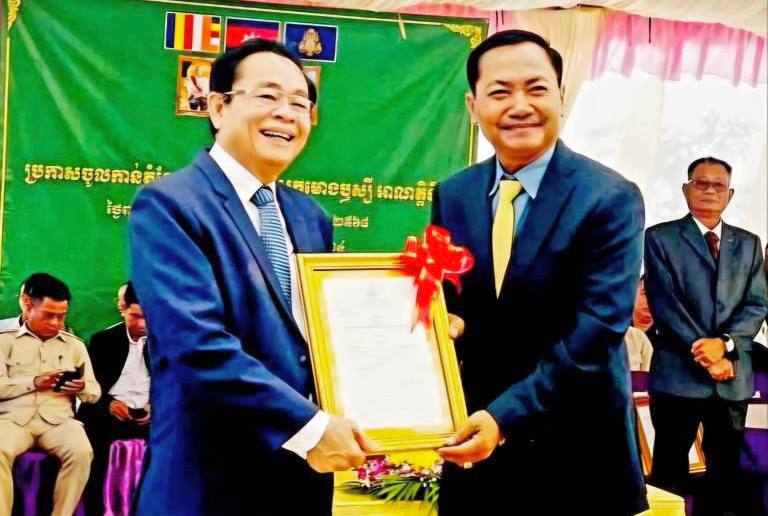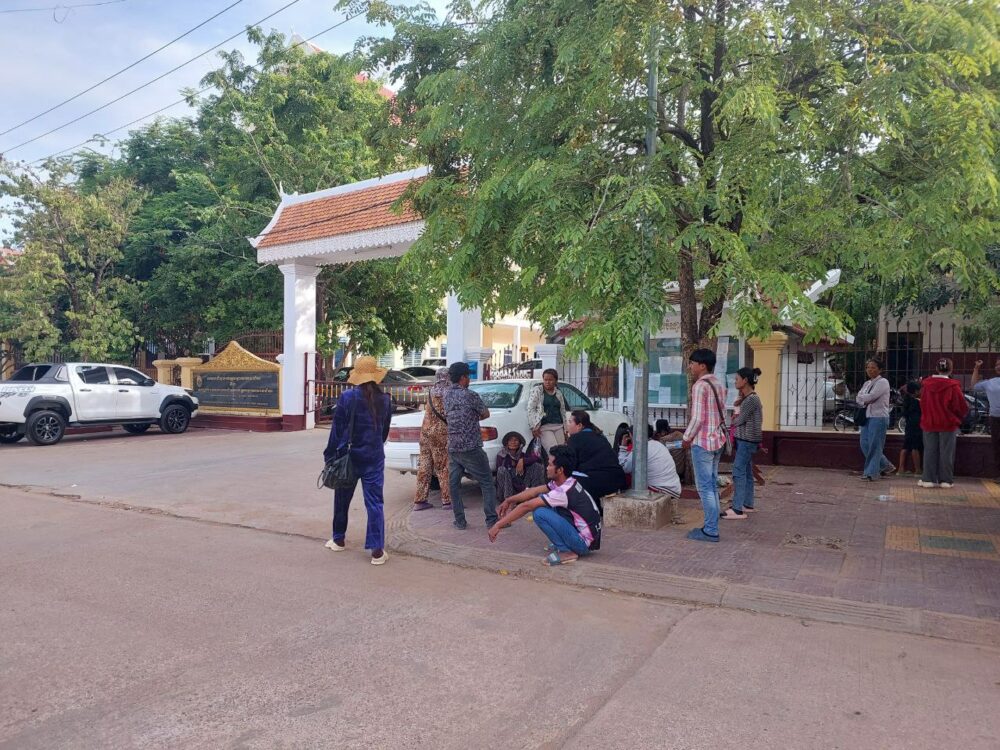Senate President Hun Sen proposed drafting a law against people who claim that Cambodia did not experience a genocide and wanted to start a “color revolution”. A political analyst has said the law would further shrink citizens’ freedom of expression in relation to historical events.
Speaking at the Future of Cambodia Without Genocide conference on Wednesday, Cambodia’s former premier Hun Sen said prevention of a genocide regime in future is needed to maintain peace while preventing the wresting of power by undemocratic means including a color revolution.
“In the past, foreigners incited [leaders] to topple [the government],” he mentioned. Presently, they have stopped inciting leaders to topple governments “but to start a color revolution instead”.
“So, if you see any form of color revolution about to happen, please eliminate it because it will lead to a genocidal war,” he said, citing such an attempt after the 2013 election. It saw former opposition leader Kem Sokha convicted of treason and is now serving 27 years in prison.
He pointed out the U.S-backed military general Lon Nol led a coup d’etat in March 1970 to overthrow the late King Norodom Sihanouk. It was followed by a genocidal regime under the Khmer Rouge in Cambodia.
“I would like to ask lawmakers to consider establishing a law as it would be easy to write the history for children to learn,” Hun Sen said.
“We must create a law, and if you say that there is no genocidal regime in Cambodia, you must be punished and fined,” he said.
He explained that the prevention of genocides could be done by educating children, who can learn about genocidal regimes, although “some politicians say there was no genocide regime”.
According to ECCC, between 1.5 and two million people were killed during the Khmer Rouge occupation from 1975 to 1979.
Social researcher and political analyst Meas Nee said it was one’s right to express their opinion about Khmer Rouge regime by saying that they committed a genocide. But those who sided with the Khmer Rouge and believed that the Khmer Rouge occupation was because of Vietnam; that is their opinion.
“I think that just making a law to reject any contradictory opinion [or] a law that goes beyond the constitution could be a violation of freedom,” Nee said.
“The Khmer Rouge regime is being used as a tool to support the reason how the ruling party came to power,” said Nee, noting that the ruling party had mentioned that they rescued people from the genocide. If someone supported the Khmer Rouge or said the regime was not genocidal, it could mean that the ruling party is losing its “propaganda tools”.
Documentation Center of Cambodia executive director Youk Chhang said the enactment of a new law to teach Cambodian genocide and military history would naturally complement related laws on genocide. It is a continuation of the laws which will be oriented towards future generations of Cambodia without genocide who will “no longer have any survivors to inform them about Cambodia’s military history”
“The possibility to review the existing law from a broader perspective of genocide is also great for a future without genocide,” he replied via email.
Cambodia has enacted at least three laws relating to genocide. They are Law on Outlawing the Group of Democratic Kampuchea, Law on the Establishment of the Extraordinary Chambers (2001); and Law Against Non-Recognition of the Crimes Committed During the Democratic Kampuchea Period (2013). All three laws were focused on addressing problems of the past or current generations.
Former CNRP lawmaker Ou Chanrath said a color revolution was “impossible to occur” in Cambodia unlike in the Middle-east countries as Khmer citizens are “not highly educated” and they “do not understand” the norms of a color revolution.
“I have seen that it is impossible to start a color revolution. If there is a law to punish [people in relation to] color revolution then I am concerned it will be divisive rhetoric [color painting] each other and [result in] unfair victimization,” he said.
Government spokesperson Pen Bona declined to comment, requesting instead to listen to Hun Sen’s speech. “He has already explained, listen to what he said and quote him,” he said.
Justice Ministry spokesperson Chin Malin could not be reached for comment.


